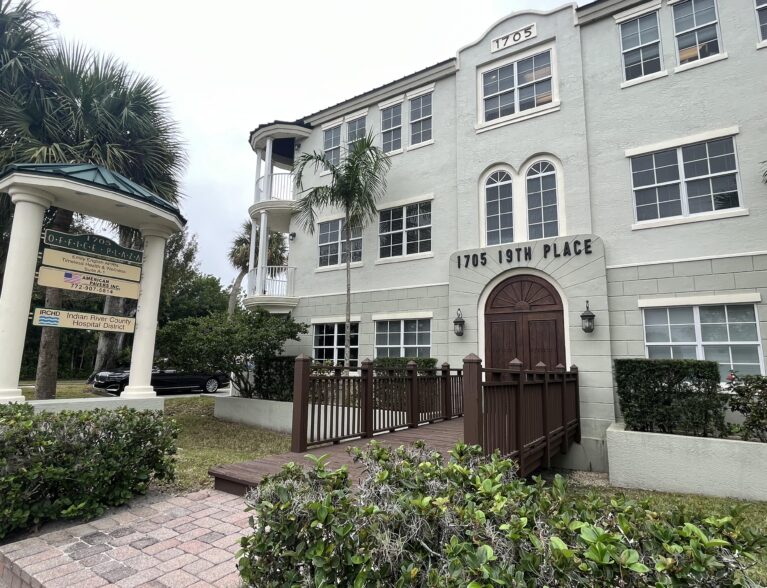
The county Hospital District has begun to contemplate the potential need for major changes in how it is funded and operates should Floridians choose to eliminate or drastically cut property taxes a year from November.
Gov. Ron DeSantis has floated the idea of eliminating property taxes, and with lawmakers in both houses of the legislature embracing a change in how Florida raises revenue, some local officials have started thinking about what would happen if the required constitutional amendment was passed with 60 percent voter approval a year from now.
Florida cities, towns, counties and school districts have a variety of funding options, with diverse revenue streams which include – in addition to property taxes – a share of state sales taxes, bed taxes, gas, utility and communications taxes and fees, solid waste disposal fees and assorted other fees and grants.
But the county Hospital District only has ad valorem property taxes to fund its operations.
Should those property taxes go away or be sharply reduced in favor of much-higher state sales and tourism taxes designed to shift the burden of funding Florida to visitors, the Hospital District would see a sharp decline in the tax dollars it now receives.
This could quickly drain Hospital District reserves, and even force the sale of some of its land holdings.
Trustee Paul Westcott brought the matter up at last week’s Chairman’s meeting in his role as the board’s liaison on legislative and state policy matters.
“I give what’s being discussed a high potential of being passed. And our sole source of revenue is ad valorem taxes. So if they’re removed or if they’re reduced, we need to really have a keen eye on what’s going on in that regard,” Westcott said.
“The worst-case scenario is ad valorem taxes are eliminated. And there’s no substitution source of revenue for us, which would eliminate the district and put us in the position of having our assets liquidated.”
Compounding this threat is the fact that the Hospital District has drastically increased its operating budget in recent years.
From 2019 to 2024 the district hiked its expenditures from $15 million to $22 million. The district also spent $4 million on purchasing and renovating a 4-acre parcel with two buildings just outside the Vero Beach city limits for an ill-planned “women’s sober home” facility which faces zoning challenges and opposition from at least one neighbor.
If the Hospital District did manage to liquidate all of its assets besides the Cleveland Clinic Indian River Hospital main campus – most of which are entangled in long-term lease agreements or rights or first refusal – and spent down its $9.2 million in reserves, it might be able to operate for one year.
Executive Director Frank Isele brushed off Westcott’s points as an unlikely worst-case scenario.
“And when would that happen? In 2027, 2028. Let’s just say, just because the district’s only source of revenue up to this point has been ad valorem taxes doesn’t mean it needs to continue that way,” Isele said. “I have lots of other options.
“There’s lots of districts that generate revenue in all sorts of ways,” said Isele, who earlier this year told the Board of Trustees that he needs to contract with a grant writer because neither he nor other district staffers write grants.
“And I’m not saying grants either,” Isele said to clarify. “I’m saying they generate their own revenue. So that option is not off the table for us.”
Overall, Isele, a New Yorker who moved to the Sunshine State from California three and a half years ago, saw a minuscule chance that Florida voters would pass the ballot measure.
“We’ll monitor this closely. If this seems like it’s truly going to come to fruition, I just don’t. There’s only so many things we could plan for that are like there’s a 1 percent chance of this happening,” Isele said.
“I’d rather focus on likely scenarios that are happening, you know, how the Medicaid cuts can affect us.”
What Isele seemed to fail to recognize is that independent special districts like the Hospital District came under fire three years ago at the state level, prompting greater regulation and scrutiny, including the state requiring audits, goal-setting and more objective reporting of community impact.
Most types of special taxing districts – like the Hospital District, established ad hoc 40, 50 or 60 years ago – could not be created today.
Special, independent taxing districts are seen by reform-minded state leaders as superfluous layers of government, little kingdoms of taxing authority with unnecessary overhead, sometimes not-so-wise spending patterns, and limited oversight.
The wholesale starvation of these special districts, which number in the hundreds and would require piecemeal dissolution by the legislature, could be seen by some state leaders as a bonus to eliminating property taxes – not a negative unintended consequence.
At the next day’s business meeting, Trustee Allen Jones, having had the chance to “sleep on” the issue, brought it up again at the end of the televised meeting.
“Paul Westcott brought up at yesterday’s meeting about a proposal going through the Florida Legislature right now to eliminate property taxes, and to lower property taxes, which is the sole source at the present time, other than interest income, of the hospital district and a number of other things, services in this county,” Jones said.
“And that sounds pretty good, I would like to pay no property tax, too, but the reality is we’ll be moving money that’s collected locally, the amount of which is decided locally for local problems.”



